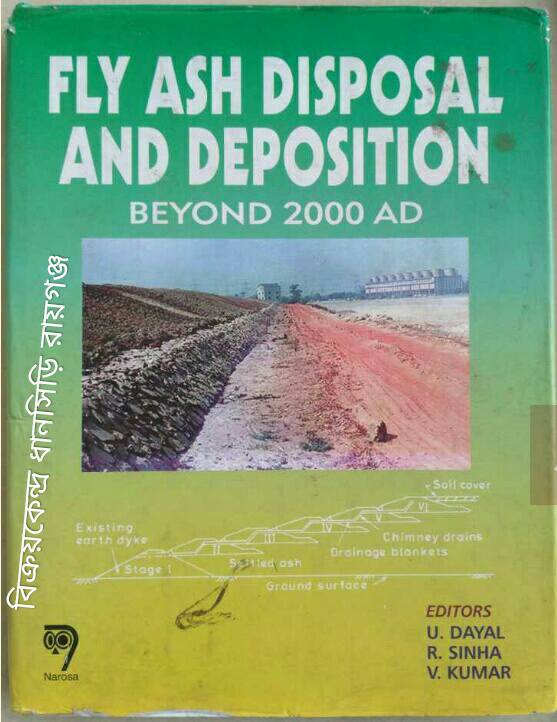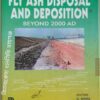Thermal power stations using pulverized coal as fuel generate large quantities of ash as a by product. There are about 82 power plants in India, which form the major source of fly ash in the country. With the commissioning of super thermal power plants and with the increasing use of low grade coal of high ash content the current production of ash is about 85 million tonnes per year. This figure is likely to go upto 100 million tonnes per year by 2000 AD which has posed a serious disposal and ecological problems in addition ot occupying large tracts of scarce cultivable land. Although the beneficial usage of ash in concrete, brick making, soil-stabilization treatment and other applications have been recognized, only a small quantity of the total ash
produced in India is currently utilized in such applications. Most of the ash generated from the power plants is disposed off in the vicinity of the plant as a waste material covering several
hectares of valuable land. Evolving methodologies for safe disposal and deposition of fly ash is the challenge for the next millenium and this is the prime focus of this volume.This book, a collection of selected papers presented at the National Conference on “Fly Ash
Disposal and Deposition: Beyond 2000 A.D.” organized at IIT Kanpur in association with Fly Ash Mission, TIFAC, DST, New Delhi from 05-06 February,1999, covers the up-to-date information on design, maintenance and monitoring of ash disposal facility, including site
investigation, remediation and strengthening, and design of ash embankment and partinent hydraulic structures. Environmental aspects including air, surface water and ground water pollution due to current ash disposal practices and suggestions for their minimisation have also been
discussed. Reclamation of abandoned ash ponds areas through ground improvement techniques and structural filling of low-lying areas utilizing ash are other important topics covered in this
volume.This volume should provide a good reference to all academia, fly ash producers and users,consultants/engineers and decision makers from industries associated with the design, disposal and management of fly ash. It is hoped that the topics covered in the volume would contribute significantly towards better understanding of the subject.
Fly Ash Disposal And Deposition Beyond 2000 AD -Editors:U.Dayal R.Sinha V.Kumar
Click on the button below to contact us on WhatsApp, and buy.
HOW TO PAY
You can pay send your payment at any of the following UPI IDs, or scan the QR code, or send the payment directly to our bank:
INDIA POST PAYMENTS BANK

(IPPB) UPI ID= 9563646472@postbank
Malay De Sarkar
A/C No: 100005759940
IFSC: IPOS0000001
Mobile: 9563646472
STATE BANK OF INDIA

(SBI) UPI ID= 9563646472@sbi
Malay De Sarkar
A/C No: 32004843406
IFSC: SBIN0000162
Mobile: 9563646472


